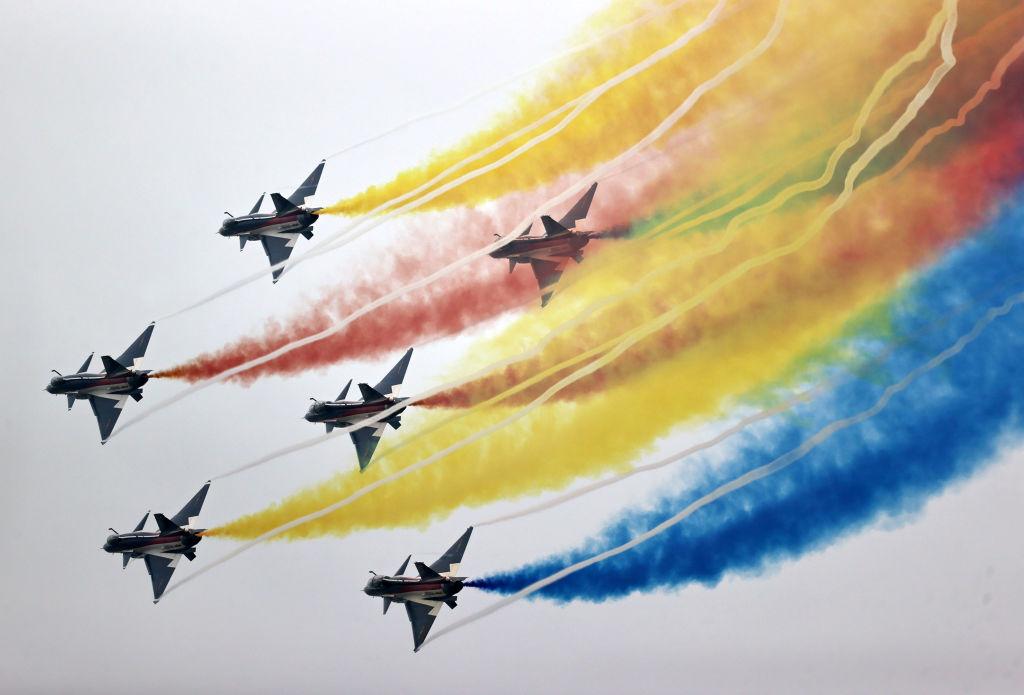Preventing the new cold war from becoming hot
Posted By John McCarthy on April 13, 2023 @ 06:00

Cold wars don’t begin with a starting pistol. They grind into action. We are no longer waiting for one. We are there. The problem is that cold wars are either interspersed with hot ones or turn into them.
The old Cold War didn’t germinate in a flash. The seeds of systems destined to be opposed to each other were there when the West and the Soviet Union were allies. But the real rift took about three years to grow—from the consolidation of the Soviets in Eastern Europe, to the Truman Doctrine, the Marshall Plan and eventually the Berlin airlift.
The deep western rift with China took a little longer to begin—mainly from the Chinese Communist victory in 1949. It deepened with the Korean War. It lasted until 1972 when America made its peace with China motivated primarily to counter Russia, but also to help rid itself of the Vietnam War.
Clearly, then, the Cold War was interspersed with hot ones, of which the Korean and Vietnam wars were the most savage.
The dissipation of the Cold War was marked by several features. The economic schism between the US and Japan on the one hand and the Soviets on the other (which accounted for only about 1–2% of total trade) remained wide. China became the second-biggest world economy. Proxy wars largely stopped. Those countries that were non-aligned felt less need to vaunt it. And while nuclear threats remained, they no longer bore the same menace of mutually assured destruction.
The Cold War from the 1940s to the 1980s is different to that of today but we must see the similarities.
There is not yet a real economic schism between East and West. Indeed, since China joined the World Trade Organization, US–China trade has ballooned, despite President Donald Trump’s trade war. There is nonetheless increasing debate in the US and elsewhere over decoupling. We may be moving away from the benevolent aspects of commerce.
As pointed out [1] by Maxwell Bessler, a wide range of views prevail in the US, from ‘cooperationists’ who see the economic benefits of integration with China as outweighing the risks, to ‘separationists’ who see—and indeed advocate—an almost complete economic split with China of the sort reminiscent of the Cold War with the Soviets.
US exports to China are diminishing. Despite the overall growth in two-way trade in the past five years, Reuters reported in March that US exports to China are 23% lower than they would have been in the absence of the trade war—and are suffering as China shifts purchases away from the US. The phenomenon of economic separation with the post-Ukraine economic (particularly energy) chasm between Russia and the West is the right policy, but it is also an instrument of cold war.
A more dramatic vanguard of the new cold war is the growth in strategic clustering. The strategic fusion of China and Russia is the clearest example of such clustering, despite their subterranean rivalries, long history of dispute and different external priorities.
Others, such as the Central Asian states, duck and weave, ironically because they are unsure whether their best interests lie with Russia or China. India is firmly in the anti-China camp but will not abandon Russia with whom it has historical and military ties. Many—such as the erstwhile Third World—object to Western sanctions on Russia and basically want to be left out of the big quarrels.
Support for Ukraine, opposition to Russia and distaste with China have all hardened in the West. Few nations would have seen France and Germany link in so tightly with the Americans and British. Few Europeans would have imagined Sweden and Finland applying to join NATO. Not many Asians would have imagined Japan planning to double its defence spending.
And we have our anglosphere and AUKUS, the latter inspired by a perceived threat from China—with Britain, after Brexit, hunting for revenue and its past global role.
South Korea and Japan have recently repaired many of their bitter differences. Japan and India—hardly similar—have been coming closer, as reflected in part by the Quad, which while less uniform in outlook than some of its protagonists would have wished, has developed a certain strategic grunt.
Clustering of countries with similar interests is no bad thing. But it can also mean that the world becomes a more bare-knuckled place.
There is a further problem. Big wars don’t usually begin unless public antipathy for an enemy is acute. Clearly hatred between most Ukrainians and Russians is profound. The experiences of both Japan and China show deep mutual antipathy. Indian dislike of China—especially in North India—is severe. Feelings about China in the US, in Canada and—partly through hysteria—in Australia are getting out of hand. Doubtless some of the same sentiments apply in China towards its opponents.
The point is that when public feelings run high—and they are often encouraged in that direction by the leadership and the media—it’s easier to start wars and much harder to stop them, absent outright defeat.
Of course, we need to recognise danger. Of course, we must defend ourselves—and do it properly. But we and our friends and allies also need to understand other perspectives and above all that public sentiment, not just evil geniuses, engenders war. Perhaps it’s time for that adage usually attributed to Winston Churchill [2]: ‘Jaw, jaw is better than war, war.’
Article printed from The Strategist: https://aspistrategist.ru
URL to article: /preventing-the-new-cold-war-from-becoming-hot/
URLs in this post:
[1] pointed out: https://www.csis.org/blogs/new-perspectives-asia/drive-decouple
[2] attributed to Winston Churchill: https://winstonchurchill.org/resources/quotes/quotes-falsely-attributed/
Click here to print.